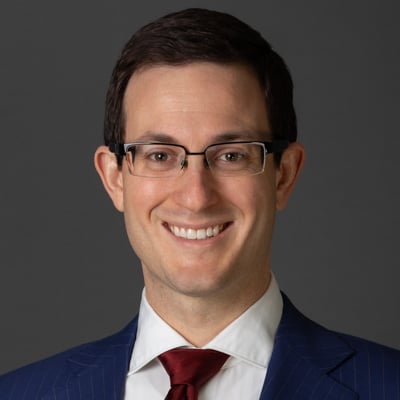Legal Department of the Year, Litigation: Oracle Corp.
Oracle v. Google has been a story of turnarounds.
Oracle Corp. persuaded a jury in 2012 that Google Inc. committed copyright infringement when it copied 37 packages of Java source code for its own mobile version of Java.
But U.S. District Judge William Alsup upended the verdict on the ground that the application program interfaces represented an uncopyrightable command structure. Oracle then persuaded the U.S. Court of Appeals to reverse. That decision, while criticized in some quarters, was ultimately backed by the U.S. solicitor general and left undisturbed by the Supreme Court, setting up a retrial next year.
Much of the spotlight for Oracle's change in fortunes has fallen on outside counsel at Orrick, Herrington & Sutcliffe and Kirkland & Ellis, and deservedly so. But Oracle's in-house team also has played a critical role from the beginning of the case and through the appeal, helping craft the winning arguments and joining in on pitches to the U.S. Copyright Office, the Patent and Trademark Office, the Federal Trade Commission and ultimately the SG's office.
"It really has been a great team effort," associate general counsel Matthew Sarboraria said. "The case has had the attention and hands-on involvement of our general counsel, Dorian Daley, since Day One and I think that's indicative of the importance of this case."
Sarboraria, Oracle's associate general counsel for IP issues; Deborah Miller, associate GC for litigation; legal counsel Ruchika Agrawal and of course Daley are among the in-house lawyers who played active roles in engineering the appellate outcome.
Oracle has been on a roll in recent years in the copyright arena. The company recovered $350 million from SAP following a 2011 trial, and just scored a $50 million verdict last month in its trial against Rimini Street.
Alsup had billed Oracle America v. Google as "the World Series of IP cases." It stems from Google's development of the Android operating system 10 years ago. Google wanted a system that would let app developers write programs for the familiar Java functionality, but couldn't agree on licensing terms with Sun Microsystems, later acquired by Oracle. So Google copied the Java APIs while writing its own code to implement them. Alsup ruled that the inherently functional nature of the APIs rendered them uncopyrightable.
The feeling at Oracle was that the decision wasn't just bad for the company, it threatened the ability to copyright any computer software. All computer code can be considered functional at some level, the company has long argued. And while Oracle licenses Java to the public free of charge, it requires licensees to contribute back new innovations, whereas Google made Android incompatible with the Java platform.
Copyright is often "the only legal backstop that you have to ensure that downstream users of your open source code abide by whatever terms and conditions may be present," Sarboraria said.
Oracle framed its appellate brief around "Ann Droid," a fictitious publisher who steals the chapter titles and topic sentences from every paragraph of a Harry Potter novel.
"For folks that aren't steeped in technology and writing code, it was easy to latch onto some of the higher-level arguments Google and its amici were making," Sarboraria says. "Cutting through that" was the goal of the briefing.
Oracle's arguments resonated at the Federal Circuit hearing. "It seems to me almost all computer code has to have a functional purpose," Judge S. Jay Plager said at the time. "Otherwise, what's the point of putting it into the code?"
Six months later, Judge Kathleen O'Malley penned a decisive 69-page opinion in Oracle's favor.
But the case was far from over. Google petitioned to the U.S. Supreme Court, and when the justices requested the views of the solicitor general, one more rung on the appellate ladder beckoned.
SG Donald Verrilli Jr. first sought the input of the Copyright Office, the FTC and several other federal agencies. Oracle lawyers and engineers met with all of them.
Oracle made its final pitch at the SG's office earlier this year, Among those present that day for Oracle were Daley and Sarboraria; Orrick partners E. Joshua Rosenkranz, Annette Hurst and Mark Davies; and Kirkland partner Dale Cendali and associate Joshua Simmons. Miller and Agrawal helped the group prepare.
Deputy SG Malcolm Stewart and dozens of government officials had plenty of questions. What computer code was at issue? How is it used? What other code like it is present in Java, Android and other software platforms? The questioning was so thorough, Sarboraria says the legal team deferred a number of times to Oracle's chief architect for Java, Mark Reinhold, also present.
On the way out of the meeting, Sarboraria recalled, Oracle's team passed Google's entourage in the hallway as they headed in.
All of the effort paid off when Verrilli's office filed its amicus curiae brief in May. "Despite the inherently functional character of all computer code, the Copyright Act makes clear that such code can be copyrightable," the brief stated. The Supreme Court denied Google's cert petition six weeks later.
Now the parties are scheduled to retry the issue of fair use before Judge Alsup next spring. Jurors hung on the issue at the first trial. Sarboraria and his colleagues are naturally hoping for an outcome that supports copyright protection. With the Supreme Court having scaled back patent eligibility for software last year, he says, "the importance of copyright protection is magnified."
REPRINTED WITH PERMISSION FROM THE NOVEMBER 11, 2015 EDITION OF THE RECORDER© 2015 ALM MEDIA INC. ALL RIGHTS RESERVED. FURTHER DUPLICATION WITHOUT PERMISSION IS PROHIBITED


